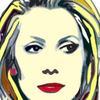
At 43, he was the youngest man to be elected and the only Catholic President of the United States. His youth and religion were issues in 1960 when he won the office by quite a bit less than a landslide. After his assassination in 1963, at age 46, those issues became irrelevant - and 64% of those polled at the time claimed to have voted for him when he was elected, though his margin of victory was just over 50%.
Yes, John F. Kennedy was charismatic and handsome, but as important were his intelligence and cool head, major assets as he was drawn into intense Cold War world politics during his three years in office.
I was very young then. I remember reading in My Weekly Reader, a newspaper for grammar-schoolers, about him and other Democratic candidates in an article on presidential primaries. Little did I know that his candidacy would actually make primaries relevant to election politics. Later, when he’d won the nomination and was campaigning in Southern California, my parents took us to Lindbergh Field, San Diego’s airport, where Kennedy was to land and say a few words before a major speech downtown. Dad had gotten a pass of some sort through political contacts that gave us admittance to the area on the tarmac where Kennedy would arrive. The enthusiastic airport audience was contained within a small fenced area where we awaited the candidate. Kennedy landed in a private plane and spoke briefly from a raised podium nearby. Then he began shaking hands with the crowd. I’d already moved from the back of the crowd, where my family was standing, to the front so I could hear better and get a good look. As the handshaking began, I climbed on top of a fallen papier mache donkey in front of the podium and reached for his hand. Success! I was thrilled. I’d been captivated by his eloquent words and magnetic presence. Now I’d shaken his hand.

Two months later he was elected. His iconic inaugural address and the grand inaugural ball (partly orchestrated by Frank Sinatra) followed in January. Soon came the Bay of Pigs fiasco, for which Kennedy took full responsibility – while learning just how much to trust the CIA and the Joint Chiefs of Staff. There was a triumphant trip to Paris with Jackie – and it seemed the U.S. had at last attained a stature in the world that, until then, had seemed the sole province of Europe. The Peace Corps was established and ‘physical fitness’ (the 50-mile hike!) was promoted. Kennedy’s frequent televised press conferences and speeches proved him to be the true ‘great communicator’ among modern American presidents. He spoke out and proposed a bill on civil rights, he signed the first limited nuclear test ban treaty with the Soviet Union and the UK…

And then he was gone.
It was the morning of November 22, 1963, sometime between 10:00 and 11:00am, Pacific Standard Time. I was in the language lab which was in my high school's library building. I began to hear what sounded like a radio or TV at loud volume coming from the library. I wondered what was going on. My next class was gym and while I was changing clothes I began to hear rumors that shots had been fired at President Kennedy. I knew that someone had tried to shoot Harry Truman when he was in office and assumed this was the same kind of thing – an attempt. It was basketball season and we girls were on the court when the school principal’s voice suddenly came over the public address system and announced that President Kennedy was dead. My best friend was in the class with me and I remember that we sat down on the court, hugging each other and sobbing.
That night, mother didn’t feel like cooking, so we went to a local restaurant to eat. It was packed. Apparently a lot of other mothers didn’t feel like cooking that night either. The eerie thing was that as we sat there in that restaurant full of people, no one spoke, not anyone at any table. The room was completely silent and it stayed silent.
My brother and I were glued to the TV through the rest of the weekend and, on Sunday morning, watched together in disbelief as Lee Harvey Oswald was shot and killed while in police custody. Then, on Monday, there was no school – it was the day of the President’s state funeral – and with it came all those never to be forgotten images…a widow heavily draped in black, heads of state from all over the world walking in the street with the family behind the coffin-bearing caisson, a riderless horse, the doleful sound of the funeral march as it played on and on, a little boy saluting his father's casket.

As I've watched some of the 50th anniversary JFK tributes and documentaries I realize that so much more than innocence was lost 50 years ago today.


